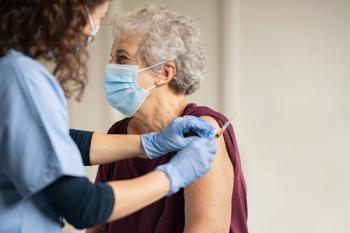
Shingles Protection Is Critical for Cancer Patients
Cancer patients have long been known to be at higher risk of developing shingles and its related complications. Now they can protect themselves from the opportunistic virus by simply rolling up their sleeve and getting two doses of the
A recent
The researchers concluded that these patients may benefit from the rapid initiation of antiviral therapy to reduce acute pain and complications. “To obtain maximum benefit, vaccination as soon as possible after cancer diagnosis may be needed, prior to immunosuppressive therapies being initiated,” they recommend.
Oncologist Dale Shepard, MD, PhD, of the Cleveland Clinic
“There have been some studies that have shown that patients with cancer have a 10% to 50% increase in the incidence of shingles. It’s a population at increased risk,” Shepard tells Drug Topics. “Now, in addition to trying to treat their cancer, we can try to prevent them from getting shingles.” By preventing herpes zoster, Shingrix also reduces the overall incidence of
While shingles does not necessarily make cancer worse or prevent its treatment, Shepard says that it can make patients’ lives more complicated at a time when they’re already facing tremendous challenges. He adds that he has had patients who developed shingles and thought they had a recurrence of their tumor.
Shepard downplays the vaccine’s reactogenicity, saying it’s not a major issue for the patients he treats. “Certainly, there are some issues of flu-like symptoms, but that’s kind of par for the course for most vaccines and along the lines of what we tell everyone for most of the chemotherapy and immunotherapies that we’re giving,” he says. “It’s not going to make the symptoms they’re getting from their treatment worse.”
In addition to advising his patients in that age population to get the vaccine, Shepard also recommends immunization against pneumonia and influenza as laid out in the
Pharmacists can make a difference when it comes to protecting against shingles and other health maintenance issues. “Sometimes, once people have cancer, even if they’re not actively being treated, there’s a little hesitancy to do something. And the shingles vaccine may be on that list because historically they couldn’t get it,” Shepard concludes. “Reaching out [to pharmacists] and making sure they’re comfortable with the fact that they can now give it is important.”
Newsletter
Pharmacy practice is always changing. Stay ahead of the curve with the Drug Topics newsletter and get the latest drug information, industry trends, and patient care tips.























